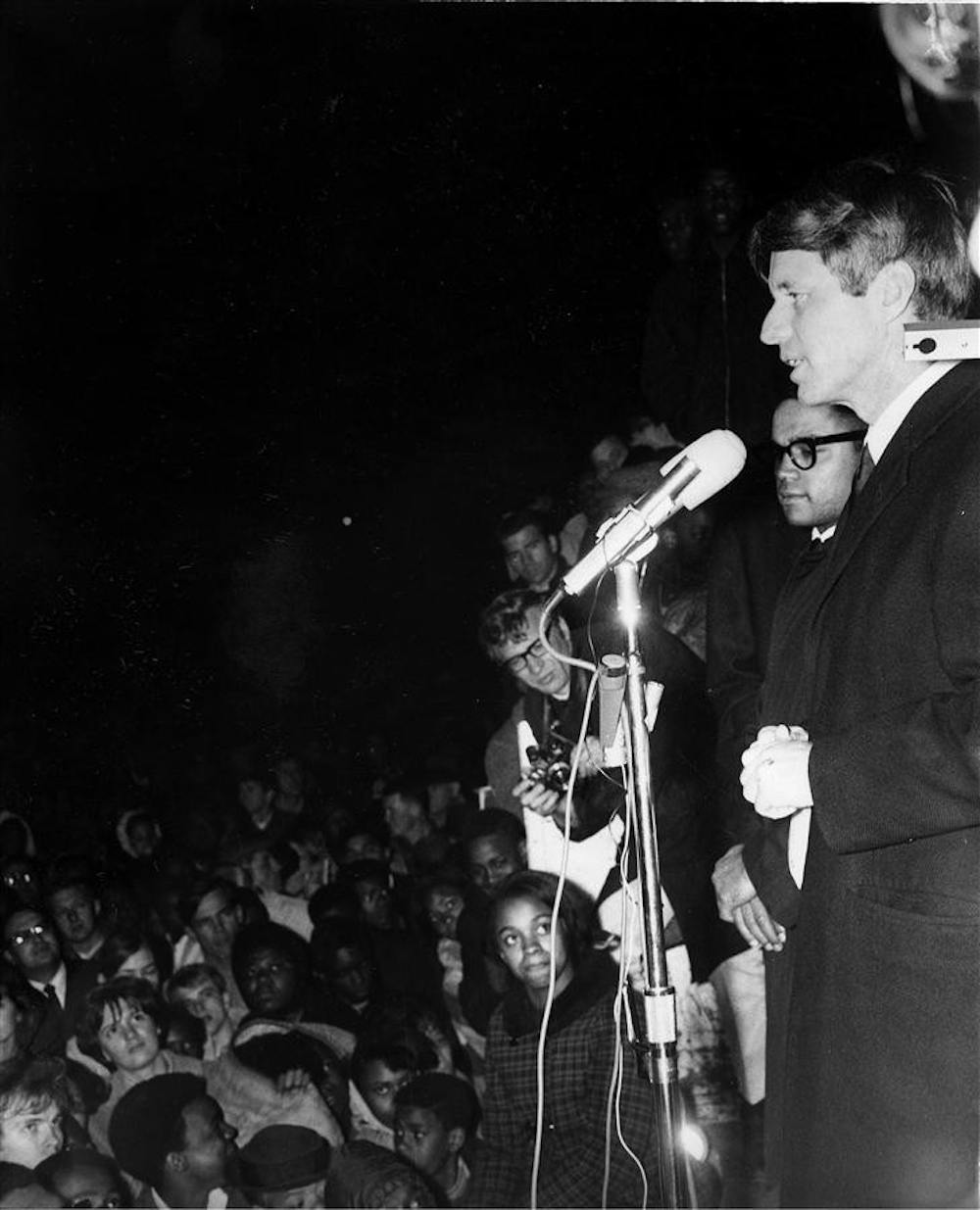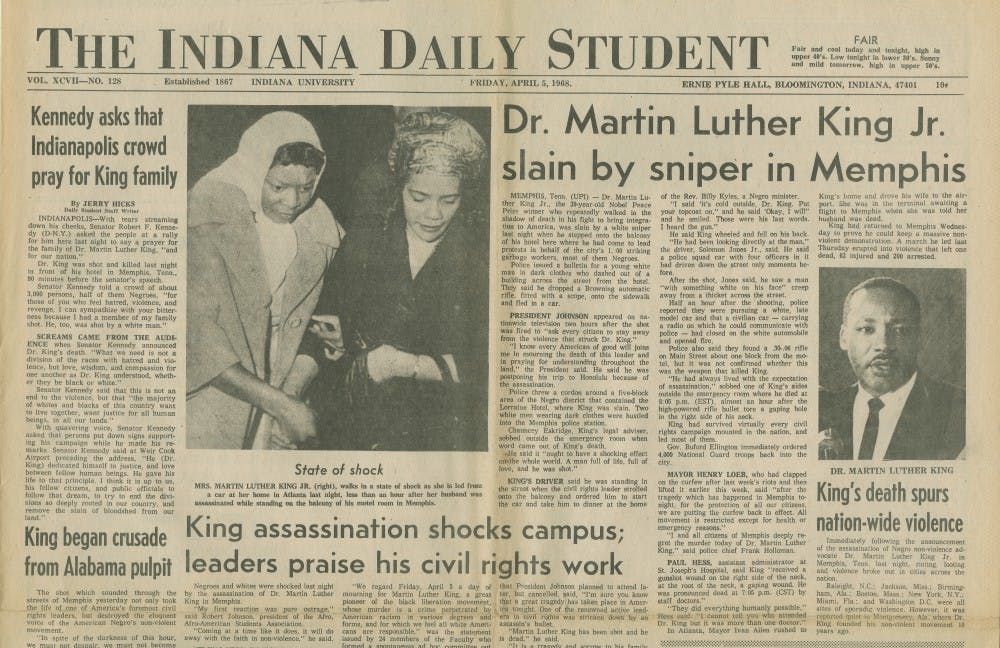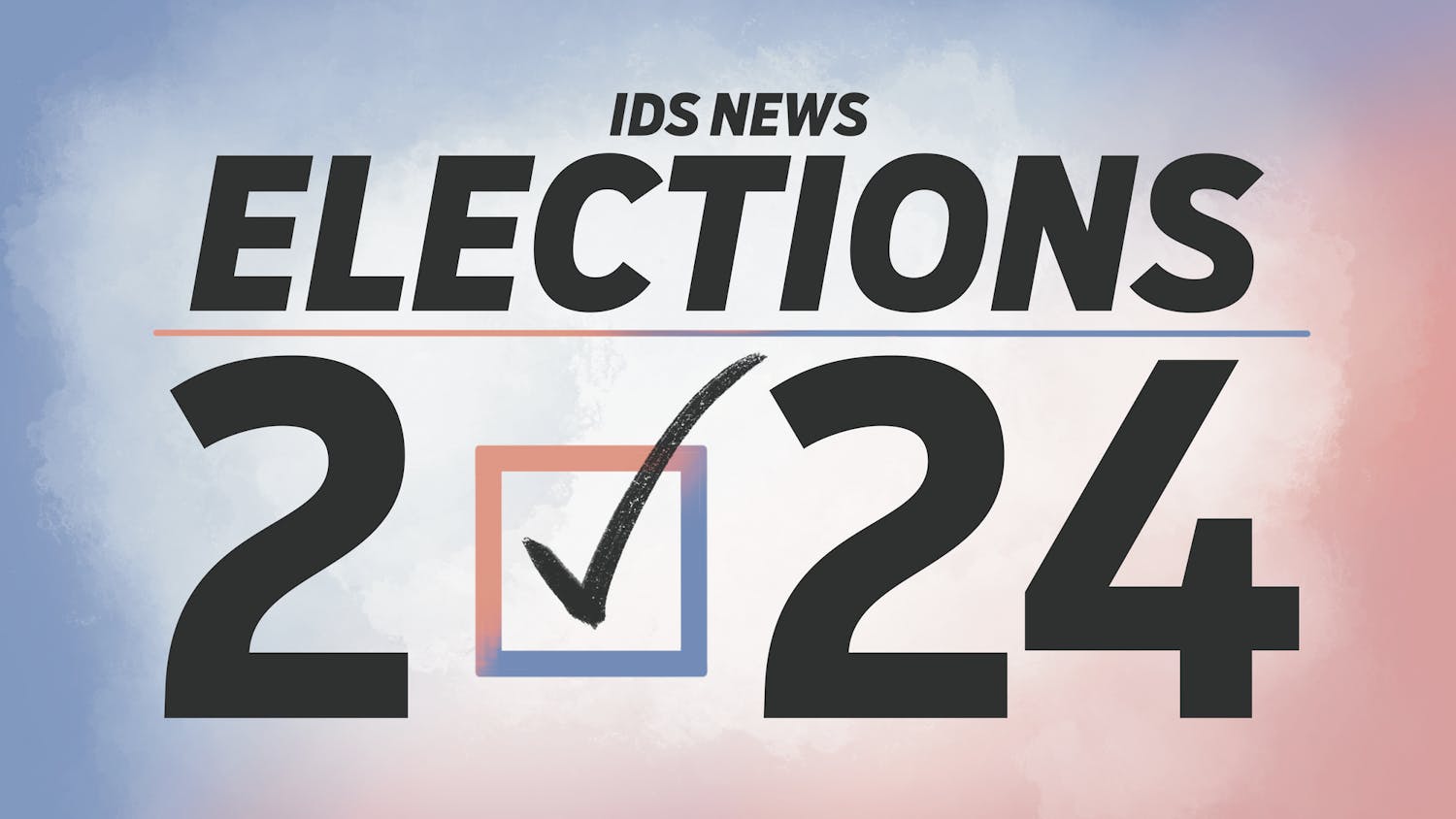A half century ago today, a Nobel Peace Prize laureate and icon of the Civil Rights Movement stepped out onto the balcony of the Lorraine Motel in Memphis, Tennessee, and was killed by a sniper’s bullet.
Two hours after Martin Luther King Jr. died, a United States senator from New York took position atop the back of a flatbed truck in Indianapolis. Flanked by aides and reporters, Robert F. Kennedy asked the people in the crowd to lower their signs supporting his presidential candidacy and broke the news to the group of 2,500 people, who screamed in agony.
Kennedy continued, his voice wavering, as he first glanced down at handwritten notes — ones he’d relied on in place of remarks provided by his speechwriter and press secretary — before folding them in his hands. The young presidential candidate’s impromptu eulogy is listed as the the 17th-best speech of America’s 20th Century based on a survey of 137 communication scholars.
“Martin Luther King dedicated his life to love and to justice between fellow human beings,” Kennedy said. “He died in the cause of that effort. In this difficult day, in this difficult time for the United States, it's perhaps well to ask what kind of a nation we are and what direction we want to move in.”

King and Kennedy had an imperfect relationship — Kennedy had arranged for the civil rights icon's release from jail after a demonstration eight years prior, but as U.S. attorney general he’d also authorized wiretapping of King’s office and home because of his relationship with suspected Communists.
Kennedy had spent the first half of the day speaking to students in Muncie and South Bend, Indiana. When asked by a young black student in Muncie whether there was any substance to his optimism in white America, he replied that his faith was justified.
He was informed as he boarded the airplane en route to Indianapolis that King had just been shot. When he landed he learned the civil rights leader was dead.
“You know it grieves me,” he said on the plane, speaking to reporter John Lindsay of Newsweek. “That I just told that kid this and then walk out and find that some white man has just shot their spiritual leader."
The mayor of Indianapolis at the time, Richard Lugar, urged Kennedy’s staff to cancel the event that night, advising him he would not be provided police protection should he proceed with his rally. Rioting had began to break out in most major cities across the United States by the time Kennedy had landed.
“My family and I could lay down in the street there and they wouldn’t bother me,” he responded to these warnings, according to historical accounts.
Donning an overcoat once worn by his dead older brother, he told people who were black standing in the lot at 17th and Broadway streets that night who may have felt hatred and mistrust that in his heart he too had the same feelings. He reminded them his brother had been killed by a white man just five years before.
As the evidence at the time pointed toward white men being responsible, he said those in the audience could be filled with bitterness and a desire for revenge. But, paraphrasing the Greek playwright Aeschylus, he preached how through pain and despair could emerge great wisdom.
“What we need in the United States is not division. What we need in the United States is not hatred,” Kennedy said. “What we need in the United States is not violence and lawlessness, but is love, and wisdom, and compassion toward one another, and a feeling of justice toward those who still suffer within our country, whether they be white or whether they be black.”
The crowd had been relatively silent until this point. They erupted in cheers and applause.
Kennedy focused on the violence and hatred he saw permeating American society that night. He asked the audience, at least half of which was black according to the next day’s Indiana Daily Student, to go home and say a prayer for the King family. The country had endured bad times in the past, he assured them, and they would endure more going forward.
While thousands rioted in cities across the country, Indianapolis was quiet that night.
That night, Kennedy cancelled his other campaign activities and retired to the Marott Hotel. He held a meeting with influential black leaders, arranged before the day’s events had transpired.
In his book on Kennedy’s 1968 presidential campaign, Thurston Clarke wrote that Kennedy then wandered the Marott. One person asked him whether King’s death reminded him of his own brother’s assassination half of a decade earlier.
"Well, that,” Kennedy replied. “But it makes me wonder what they might do to me too."
It was a violence and lawlessness which Kennedy railed against in his unrehearsed remarks in the lot on 17th and Broadway that killed King in front of the Lorraine Motel that night.
It was the same violence and lawlessness that would, two months to the day, lead to his death in the kitchen of the Ambassador Hotel in Los Angeles.
This story was reported through a compilation of a video of Kennedy's speech, historical accounts and excerpts from books including: "Robert F. Kennedy and the 1968 Indiana Primary" by Ray E. Boomhower; "Robert Kennedy and His Times, Volume 2" by Arthur Meier Schlesinger; and “The Promise and the Dream” by David Margolick.




